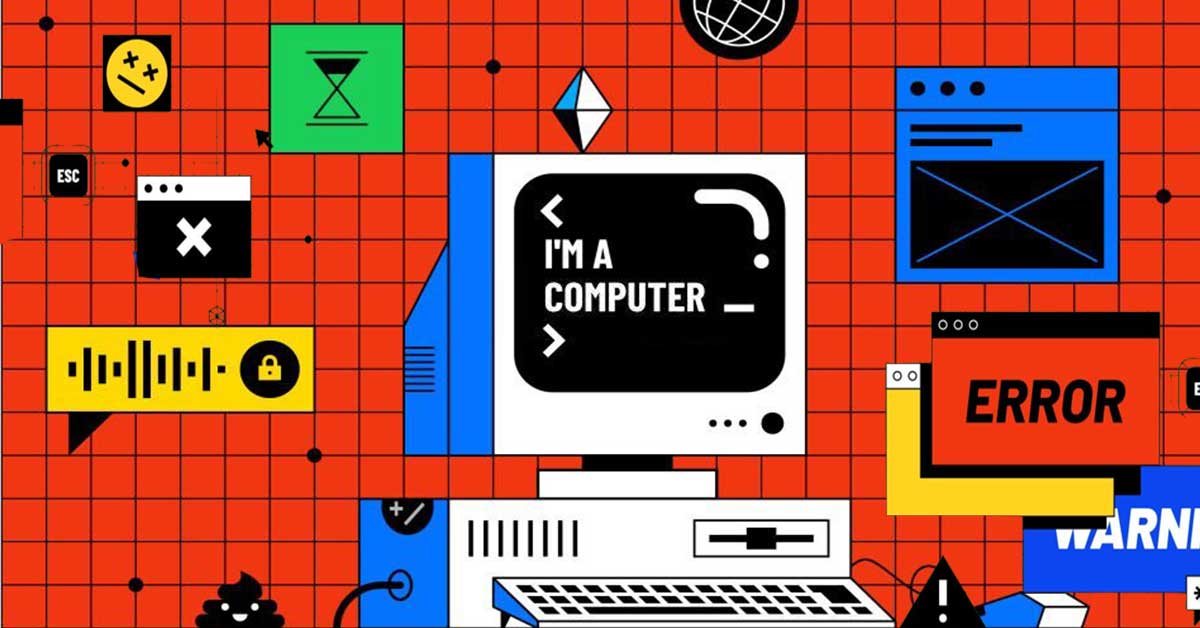Once upon a time, in a world without the Internet, accessing information, connecting with others, and shopping online were distant dreams. Can you imagine? As a person who grew up with the Internet, I could never imagine a world without it—being like a different universe. But then, something incredible happened.
In 1969, a group of brilliant minds working on a research project called ARPANET, funded by the U.S. government's ARPA, had a vision. They wanted to create a way for research computers at different universities to exchange information. I'm sure they never thought their experiment would ignite a spark that would change the world forever.
Origin and Components of the Internet
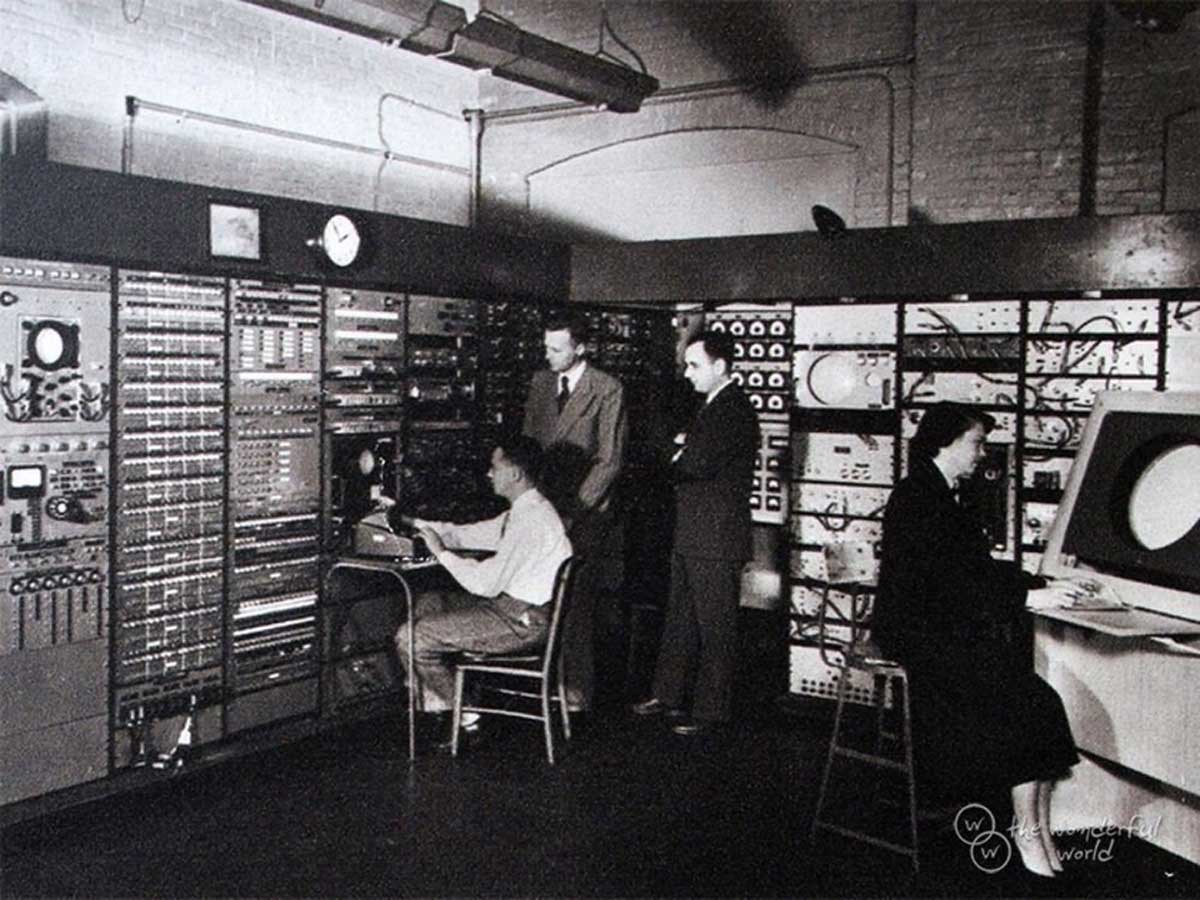
ARPANET and the Internet's Infrastructure
1969 marked an important moment in Internet history when ARPANET came into being through efforts from ARPA, an arm of the U.S. Government's Advanced Research Projects Agency.
ARPA's vision included creating an advanced system allowing research computers at universities worldwide to communicate and exchange information using this revolutionary network that later came to be known by its acronym of origin, ARPANET, now better known by its newer moniker of "Internet."
The Internet is an expansive global network of interlinked computer networks. To facilitate its communication and data transmission capabilities, its infrastructure consists of various hardware components like computers, smartphones, cables, satellites, routers, and servers, each essential in guaranteeing smooth navigation throughout its network.
Packet Switching and the OSI Model

Packet switching is one of the core processes underpinning Internet functionality. Data transmitted across networks are divided into smaller, manageable chunks known as packets that travel along various pathways depending on network conditions. Each device connected to Internet has an IP address as its unique identifier.
The OSI (Open Systems Interconnection) model is integral to transmission processes. This framework transforms text files and other forms of data into electronic signals, which can then be transmitted over networks efficiently and accurately to their final destinations.
Internet Service Providers, or ISPs, play an essential role in the functioning of the Internet. Acting as intermediaries that route data packets based on destination addresses, ISPs provide users access to a vast array of online resources that otherwise would remain inaccessible.
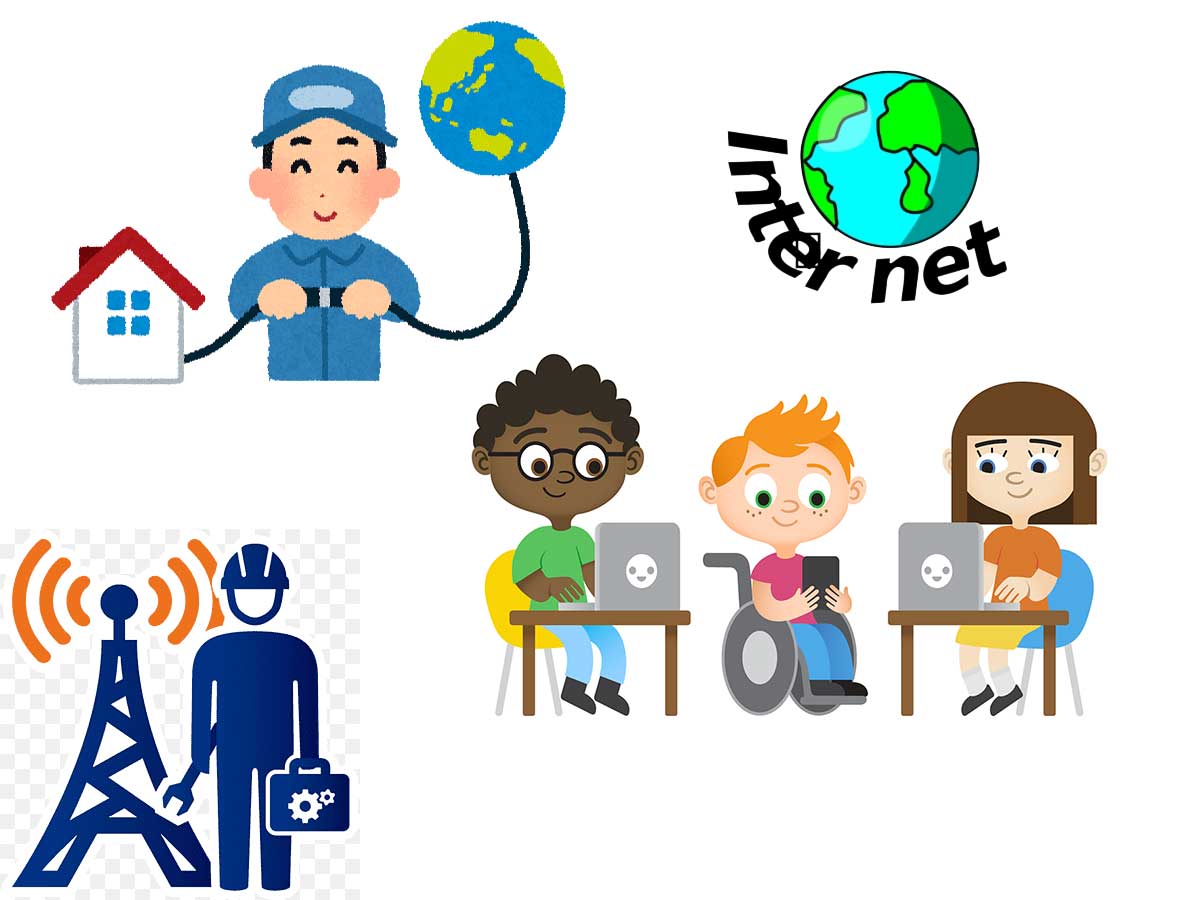
It's essential to differentiate the Internet and World Wide Web (WWW), though both terms may often be used interchangeably. They refer to distinct aspects of our online experience, with the Internet serving as an underlying network that facilitates data and communication exchange. At the same time, WWW contains collections of multimedia information and multimedia content accessible via the Internet.
Security and Privacy on the Internet
Security and privacy are paramount concerns in the vast realm of the Internet. Various security threats loom, posing risks to individuals and organizations alike. Data breaches, where sensitive information is unlawfully accessed and exposed, pose a significant challenge.
Hackers with advanced tools and techniques exploit vulnerabilities to gain unauthorized access to systems and networks. We had to mention the dark web, a hidden part of the Internet, serves as a breeding ground for illegal activities, including the sale of stolen data and hacking services.
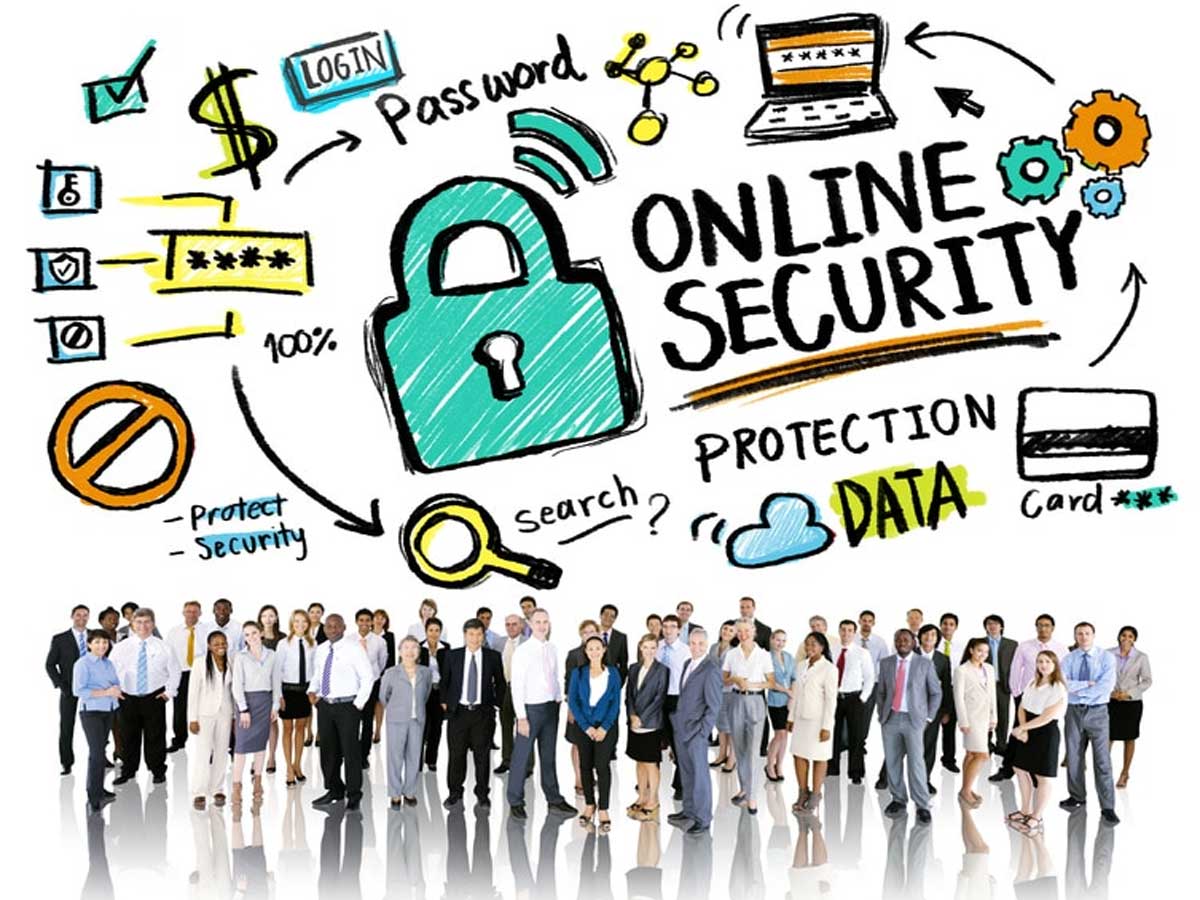
The growing amount of personal and financial information shared online makes safeguarding privacy crucial. Individuals must be mindful of the risks associated with the digital landscape. Privacy measures are essential to protect against security threats.
Installing antivirus software helps detect and mitigate malicious programs that could compromise personal data. Creating strong passwords and regularly updating them adds an extra layer of security. Virtual Private Networks (VPNs) offer encrypted connections, shielding online activities from prying eyes.
The Internet's Impact on Society
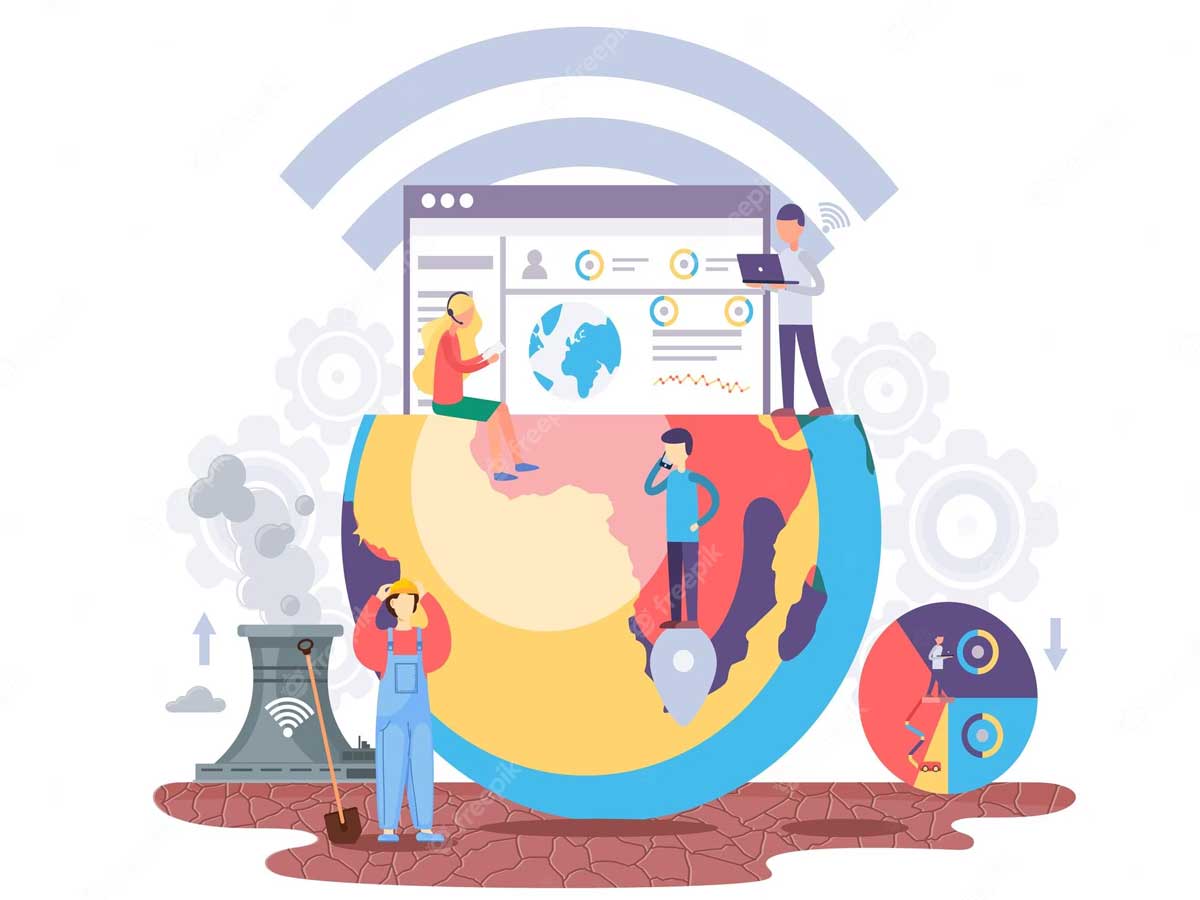
The advent of the Internet has profoundly impacted various aspects of society, particularly in the realm of social dynamics and relationships. On the one hand, it has brought about positive changes by facilitating connections and fostering new relationships.
Individuals can now easily communicate and interact with others from around the world, breaking down geographical barriers. The Internet has also played a pivotal role in shaping civic engagement, empowering individuals to participate in social and political causes, mobilizing communities, and raising awareness about pressing issues.
However, the Internet's impact on social dynamics has its challenges. It has also given rise to certain negative aspects. Online platforms can sometimes promote anonymity and detachment, leading to the proliferation of cyberbullying and harmful behaviors.

Additionally, excessive reliance on digital communication may hinder face-to-face interactions and affect the quality of relationships. Individuals need to balance their online and offline lives, ensuring that virtual connections do not substitute for real-world connections.
Apart from its influence on social dynamics, the Internet has brought numerous benefits to society. One of the key advantages is the easy access to a wealth of information and knowledge from diverse sources.
With a few clicks, individuals can explore various topics, conduct research, and expand their understanding of the world. This accessibility has democratized education and empowered lifelong learning.
Improved communication is another significant outcome of the Internet's impact. With the emergence of various communication tools and platforms, individuals can effortlessly connect with others across the globe, fostering relationships, sharing ideas, and collaborating on projects.

The Internet has also revolutionized professional life, giving rise to remote work opportunities. Now, individuals can work from anywhere, transcending the boundaries of traditional office spaces. This flexibility has transformed the nature of work and opened doors for greater work-life balance.
Entertainment and multimedia content have also experienced a paradigm shift with the advent of the Internet. People can now access a vast array of movies, music, games, and other forms of entertainment at their fingertips. Streaming services, online gaming platforms, and social media have become integral to modern leisure and entertainment.
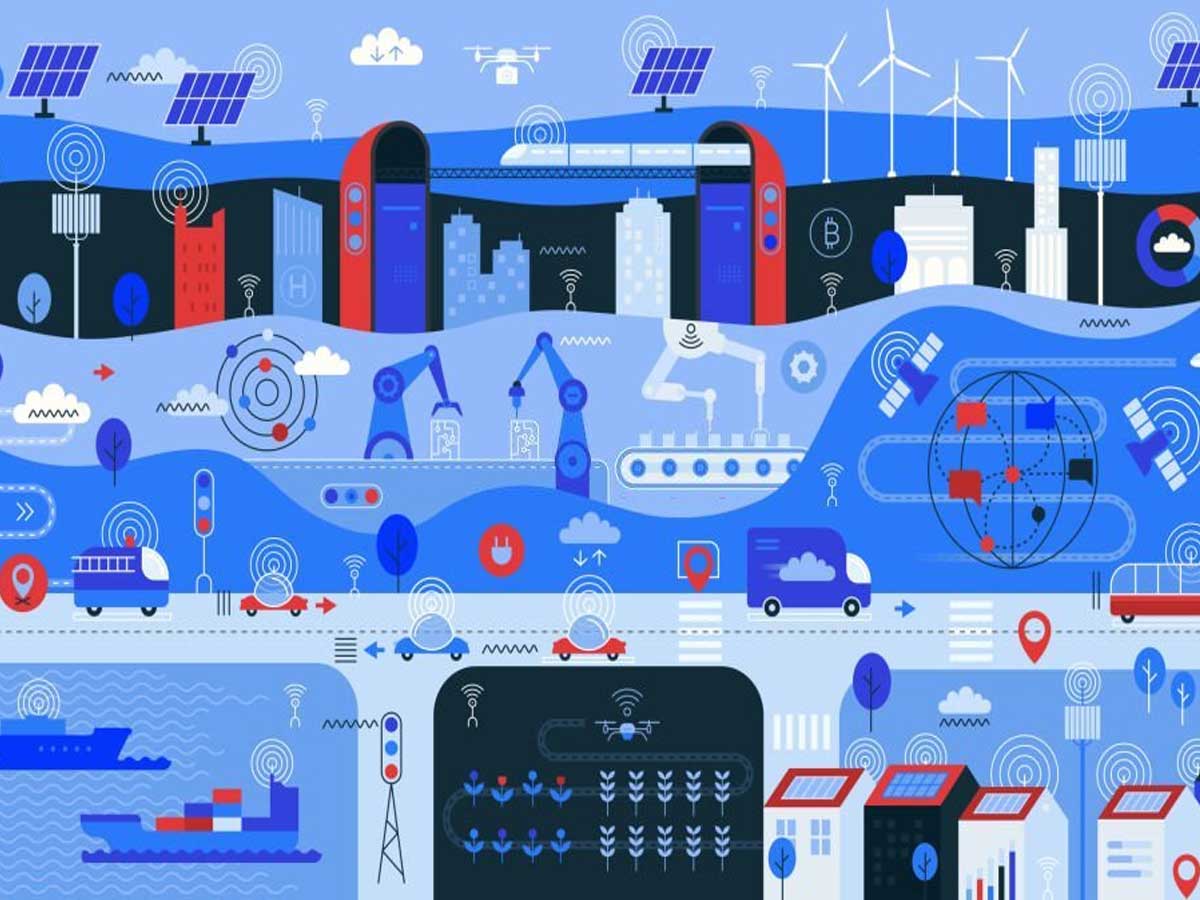
Furthermore, the Internet of Things (IoT) has emerged as a significant development, further integrating technology into our daily lives. It enables the connection and control of various home devices through the Internet.
The IoT enhances convenience, automation, and efficiency in our daily routines, from smart thermostats and lighting systems to voice-activated assistants and home security systems. It can transform how we interact with our homes and make our lives more streamlined.
Evolution of the Internet and its Historical Milestones
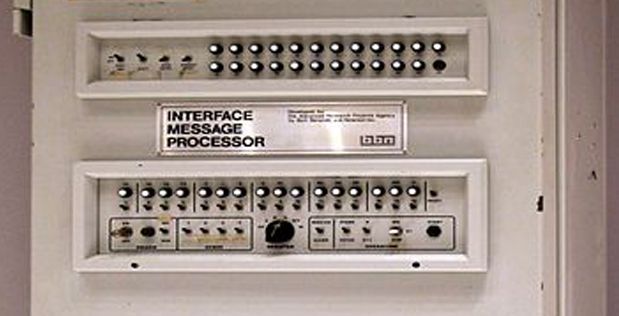

The Internet has come a long way since its conception, marking significant milestones that have transformed it into the global network we rely on today. ARPANET was introduced as an early research project in 1969 that connected computers at different universities around the country. Eventually, this developed into what has now become known as the Internet. I find its evolution fascinating!
TCP/IP played an instrumental role in expanding the Internet, providing seamless communication and data transmission among networks. Thanks to these rules, we could connect effortlessly and access information easily truly astounding how such protocols have become the cornerstone of Internet usage, making our lives much simpler online!
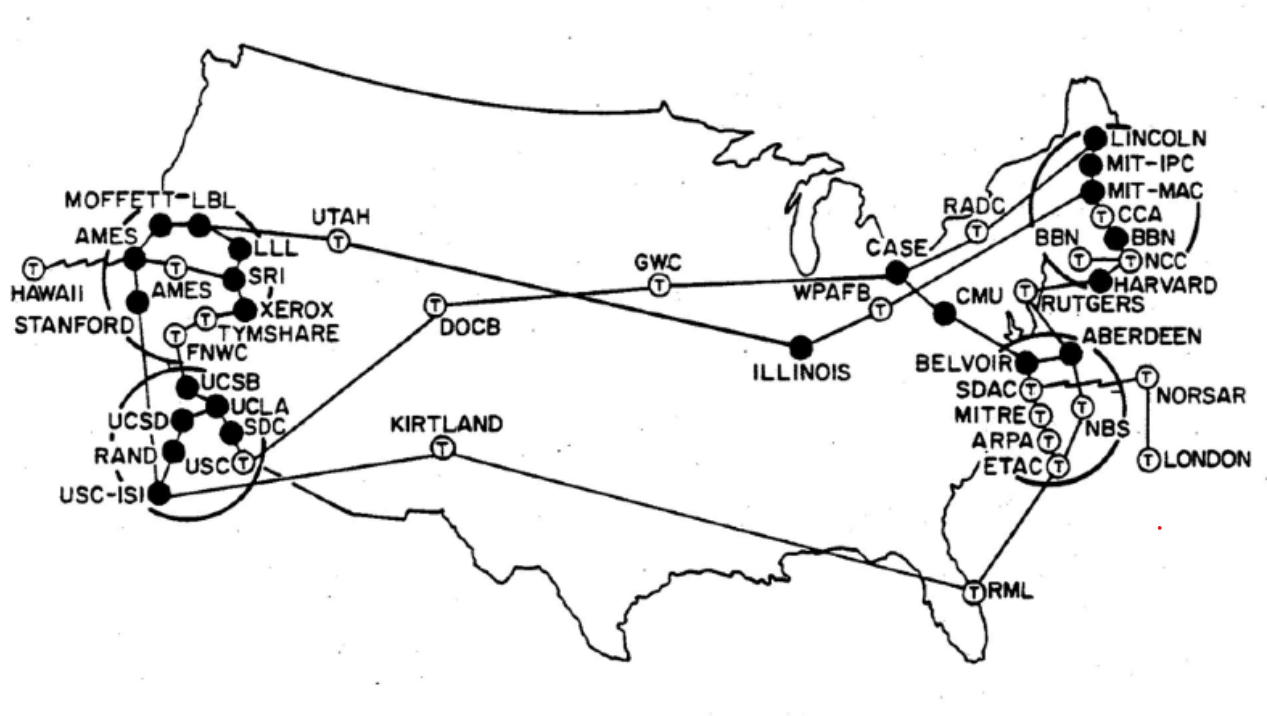
Another significant milestone in Internet history has been the Internet of Things (IoT). It astonishes me how everyday devices and objects can now connect through this global web and automate tasks or add convenience to our lives, from smart homes and healthcare to transportation. Thanks to IoT, we now experience technology as never before!
Internet connectivity has recently experienced exponential growth as more people, including myself, depend on it for communication, entertainment, and education.
It has become an indispensable component of daily life, connecting us globally while offering access to vast sources of knowledge and entertainment, not to mention virtual reality experiences, which take our digital experiences even further than before!
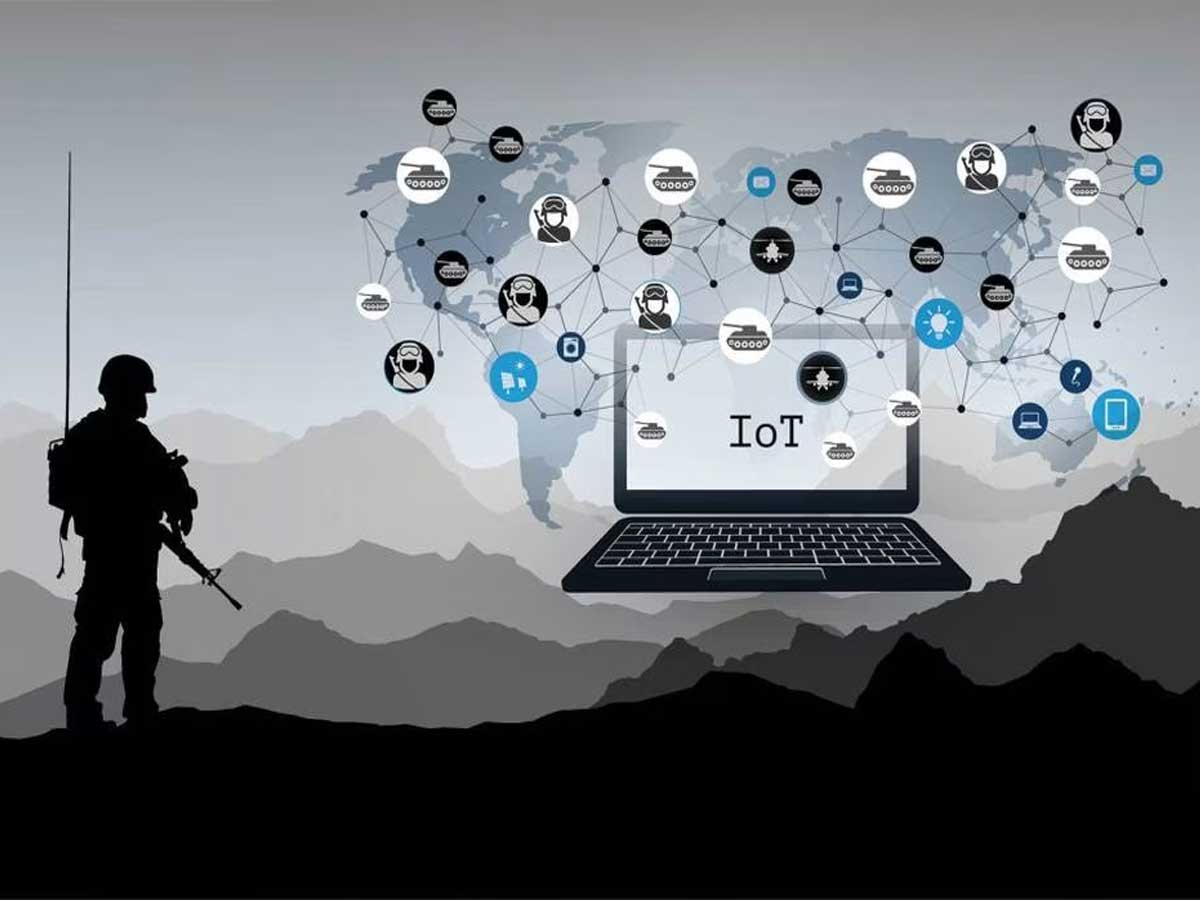
Military networking's influence on Internet history is remarkable. Secure communication systems required by the military have led to substantial advances that have strengthened Internet infrastructure, benefitting those within military circles and improving reliability and security for Internet users like myself.
Personal computers have played an invaluable role in expanding Internet access and usability. I am deeply thankful that their affordability and user-friendliness have allowed them to reach individuals from various walks of life, giving us all access to connect, share information, and explore an infinite online universe! These devices allow us to stay in contact, exchange data quickly, and explore this vast realm!
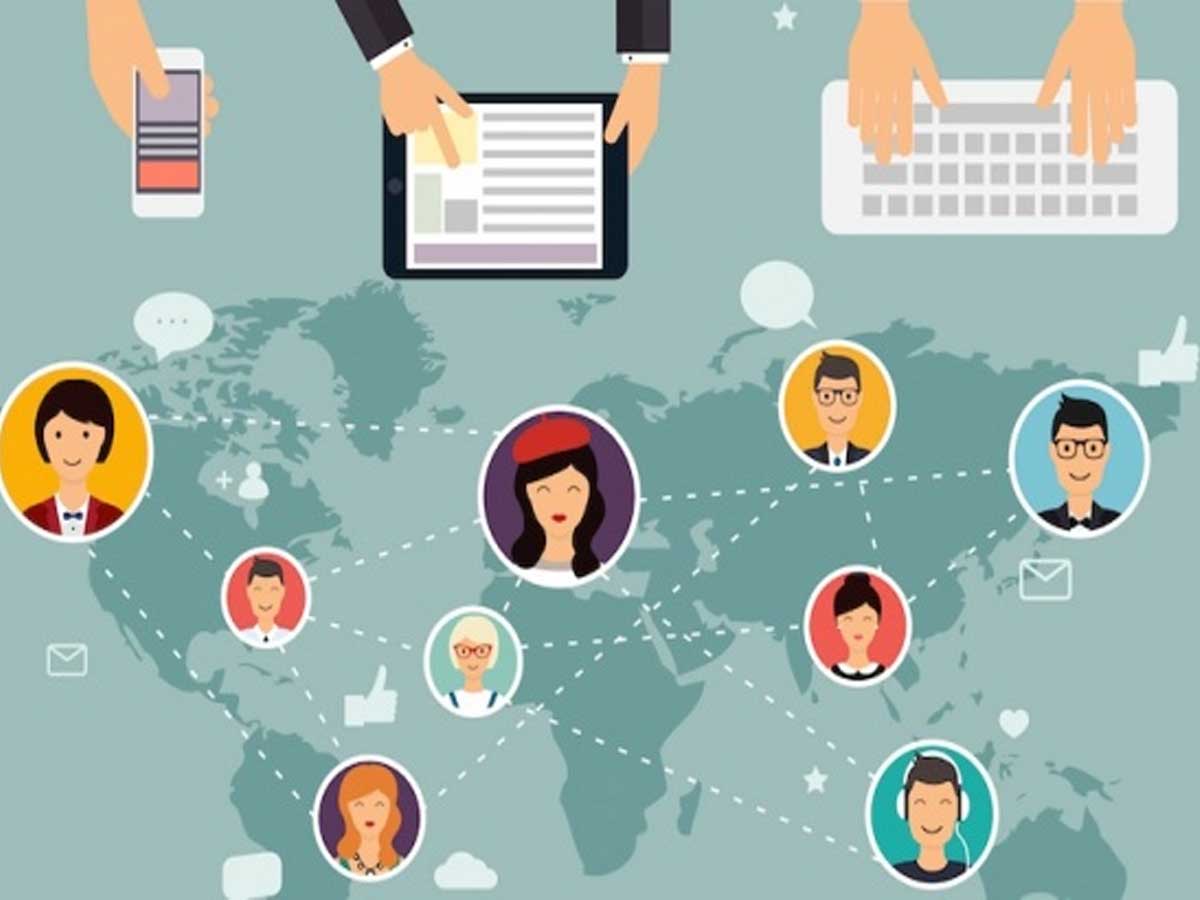
Communication and community formation online has revolutionized how we interact and form connections with one another. Electronic bulletin boards were instrumental in encouraging dialogue and information exchange.
Individuals could connect, share ideas, and form communities based on shared interests on these virtual platforms, which is truly fascinating! From these early online spaces emerged the vibrant online communities we see today.
The rapid evolution of online communication has undeniably profoundly affected traditional forms, like mail delivery or information dissemination. Thanks to email, instant messaging, and social media tools like these information sharing has increased considerably more efficiently and rapidly than in previous decades.
I appreciate how online communication allows me to stay in contact with friends and family across geographical barriers while forging closer bonds among us all.
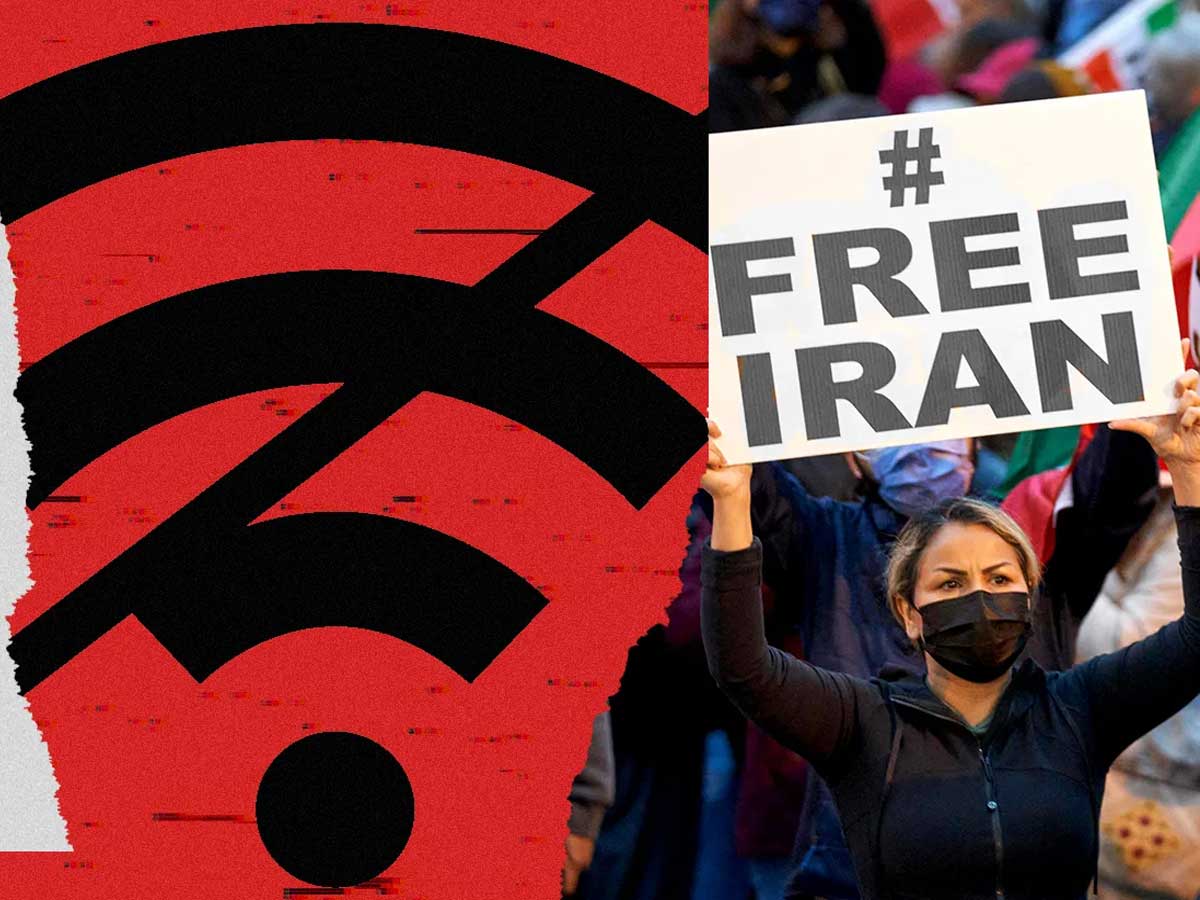
Internet technology has also played an invaluable role in organizing protests and activism, providing spaces where individuals can unite, coordinate efforts, advocate for change, and advocate for reform. Social media platforms, particularly, are powerful tools for political movements and disaster relief efforts.
Through hashtags, viral campaigns, and online petitions, individuals and communities can amplify their voices, raise awareness, and mobilize action on any subject matter.
Internet dating services have forever altered how people form relationships and meet potential partners. Online platforms cater to niche groups and target markets, giving individuals more chances to meet suitable matches with shared interests or preferences, thus opening doors that would otherwise remain closed to them. I find it remarkable how the Internet has transformed the dating landscape, providing new avenues of romance and companionship.

The Internet has had an immense and lasting effect on society through its vast and varied content, from valuable information to concerns over online content diversity. Adult content can often be found on numerous online sites dedicated exclusively to pornography; therefore, users need to exercise caution when responsibly browsing virtual spaces online.
HOW MANY PORN SITES ARE THERER
- 4% of all websites globally are porn sites (Statista data)
- Web searches for "sex" or "porn" account for 13% of all search prompts worldwide
- 20% of searches related to this category are made through mobile devices.
Key components of the Internet include advertising, e-commerce, e-books, and digital music. Advertising provides advertisers new channels for reaching audiences, while e-commerce has revolutionized how we shop and conduct business online.
E-books and digital music provide convenient instantaneous access to a vast library of materials for consumption or access plus, it has had profound ramifications on education, knowledge production, and politics by providing unfettered global collaboration tools that shape how we learn, share knowledge, and participate in political debate.
The Future of the Internet

Looking ahead, the Internet holds endless potential alongside significant challenges as its evolution unfolds. One remarkable transformation already underway is the shift from passive browsing to active engagement on Web 2.0. No longer are mere spectators but active participants contributing, sharing, and connecting through social media, blogs, and interactive platforms like social networking websites.
It is immensely empowering, allowing individuals like yourself and me to have our voices heard as we create meaningful digital relationships.
Web 3.0, commonly called the semantic web, holds even greater promise for the future of the Internet. This vision depicts an internet where machines understand and interpret information more intelligently, resulting in more precise search results and personalized experiences.

Envision a time when this magical force intuitively caters itself to our preferences and needs to provide seamless, enriching journeys online! Another fascinating element of Web 3.0 lies within its potential reduction of our dependence on cookies which track and store our data, leading to more privacy-protection online environments, which is essential given our digital age!
Organizations like the Internet Engineering Task Force (IETF) and World Wide Web Consortium (W3C) play key roles in shaping its future by setting standards and protocols that ensure interoperability, security, accessibility, compatibility, and sustainability across platforms and devices.
While IETF specializes in technical aspects like interoperability and security through standards development/maintenance, W3C concentrates more on web standards such as making websites accessible, consistent, and compatible across devices. Their work provides an essential foundation for an open Internet that remains user-friendly/inclusive!
As we progress forward, we must strike a balance between progress and meeting challenges along our journey. Online privacy, cybersecurity, and closing the digital divide are urgent matters which demand our immediate consideration. By coming together around this cause, we can build an Internet that connects and empowers all individuals, unleashing human collaboration, innovation, and global connectivity for everyone involved.
Sources: techtarget.com / britannica.com / usg.edu / internetsociety.org / darpa.mil
